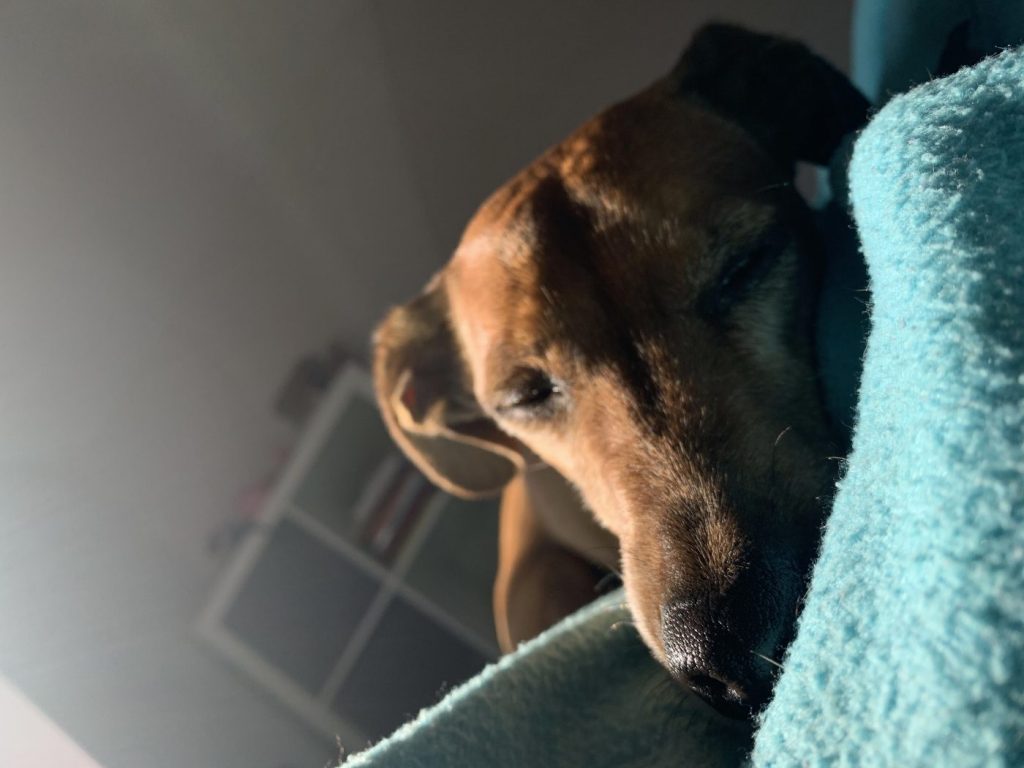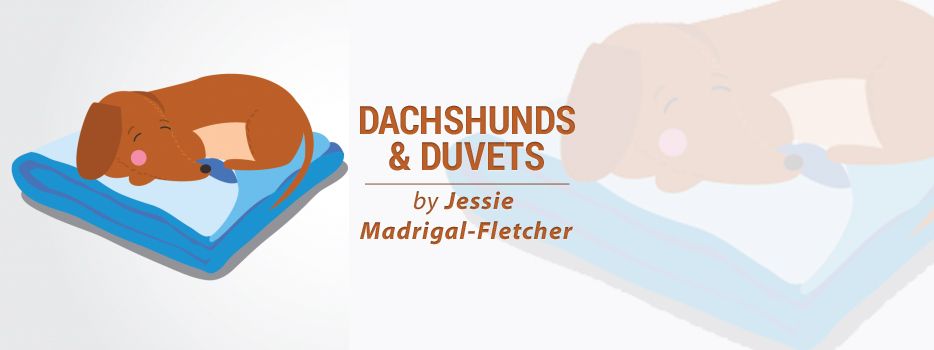In the northern hemisphere, days are becoming shorter and noticeably darker. Winter is coming. I even had my first pumpkin spice latte of the season on Sunday. With such basic taste in hot beverages, you’d think I would be dancing around in a gigantic scarf and jumping into piles of golden leaves.
The truth is I’m dreading the months ahead. I’m in this sorry state for three reasons: my single status, the unsettling pandemic, and my chronic illness.
Facing a triple whammy of sadness, anxiety, and endometriosis.
Being single means going home to just my dog. He isn’t particularly interested in my grocery store musings (“Is coconut oil actually good for me?”) or the thoughts I had on the way home (“Is Harry Styles too young for me?”).
While I’m grateful to be greeted by a manic furball who wags his entire body just for me, the lack of conversation always hits me in the face. Turning my thoughts into words is one way I deal with anxiety.
Maybe I should embrace talking aloud, even when I’m alone. Research shows that speaking to ourselves helps slow down our thoughts, which means processing them at a slower, more conscious pace.
Perhaps the key to navigating the tough winter ahead is having the right attitude. According to health psychologist Kari Leibowitz, there are health benefits in viewing the seasonal change and everything it entails as a challenge — an opportunity to learn and make the right adjustments.

Currently, I am educating myself with challenging books (send me all of Brené Brown’s) and am learning to play the guitar. I’ve read that our brains are similar to muscles: They benefit from occasional “flexing.” Practicing new skills can also improve focus, which is useful when you have a meandering and anxious brain.
My brain is one thing. My irreverent, misbehaving, malfunctioning ovaries are a different matter.
Coping with endometriosis alone is my new, sometimes harrowing, reality.
Any flare-ups or health crises are managed by me, myself, and I. If I can’t move very much, I need to find a way to cover the basics, such as walking my dog and feeding myself.
I have stocked up on my medication to ensure I have enough to get me through the tougher months. If I don’t have the energy to cook, I will order food. If I feel overwhelmed, I will ask my friends to lend me a hand.
I won’t torture myself when I can’t force a smile or wake up in the “right” state of mind. This is the winter to speak up and connect, even if it’s mostly online.
I’ve always seen my endometriosis as a challenge the universe dropped on me, like a cartoon piano. Each flare-up produces shock waves that affect every aspect of my life. When outside circumstances are dire, it is tough not to hide under my duvet and cry myself to sleep.
Yet, there is a reason why one of my catchphrases is “screw you, endometriosis.” Like the many endometriosis patients who read this column, I have bucketloads of resilience. I will not give up this winter.
***
Note: Endometriosis News is strictly a news and information website about the disease. It does not provide medical advice, diagnosis, or treatment. This content is not intended to be a substitute for professional medical advice, diagnosis, or treatment. Always seek the advice of your physician or other qualified health provider with any questions you may have regarding a medical condition. Never disregard professional medical advice or delay in seeking it because of something you have read on this website. The opinions expressed in this column are not those of Endometriosis News or its parent company, BioNews, and are intended to spark discussion about issues pertaining to endometriosis.

